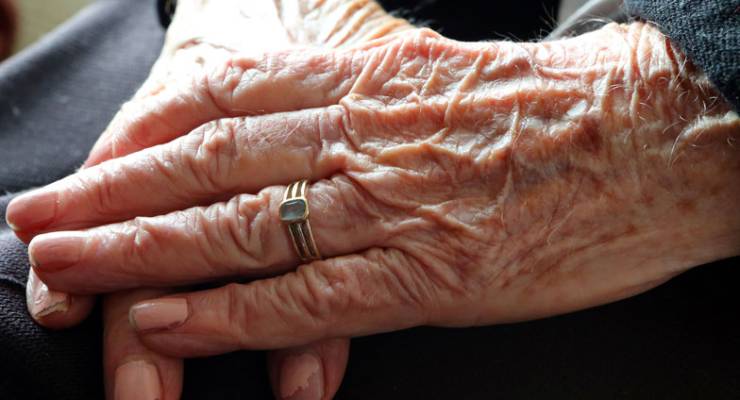
So now we care about the elderly. Now, we are prepared to take whatever drastic action is required to prevent a virus that is primarily killing older Australians.
Despite some on the right complaining, most people support the fact we are willing to pay such a high price to protect the vulnerable at the end of their lives.
It took a pandemic — and putting the economy into a coma — to get there, but it’s not like we didn’t have chances to look after their welfare before this.
Have we so quickly forgotten the horrifying evidence reported only last year at the Royal Commission into Aged Care Quality and Safety?
You remember: the litany of stories of abuse, neglect and even malnutrition in homes where the providers couldn’t even feed the residents properly.
Was it only last November that the interim report from the royal commission said the evidence thus far had been a “shocking tale of neglect”?
It was only thanks to the focus on the royal commission that we learnt, for example, the sorry statistics behind Bupa, the biggest single private aged care provider in Australia.
Of its 72 homes, 45 failed to meet basic health and safety standards, 22 put residents at “serious risk”, 13 had been sanctioned and lost government funding and five had lost their accreditation totally.
The royal commission hasn’t concluded. It is on hold because of the current health crisis. What difference will the pandemic on the final report when it eventually comes out?
Meanwhile, the most immediate concern for the residents is not just the health threat from COVID-19, but the same threats to their well being that were there beforehand.
In many cases it was only diligent family members and visitors who uncovered wrongdoing and with visits now curtailed, and in some cases totally banned, one can only imagine what is happening behind closed doors.
The commission’s interim report led to the federal government injecting half a billion dollars into the sector but that is looking as puny as the first stimulus package, with the industry this week seeking a billion-dollar lifeline.
Take a number, get in line.
However this is a sector that should be at the front of the queue — for all the reasons that made their customers the most vulnerable now and before this disease hit.
The government was quick to bail out the child care sector early in the crisis. That the very young and very old need protecting in this crisis is obvious.
It’s also clear that both sectors have been woeful examples of the dangers of privatisation — attracting an array of spivs and chancers who have ripped off vulnerable customers.
We’ve seen everything from the collapse of ABC Learning during the last economic recession, to owners who have literally walked away when things got too tough — as happened at the Earle Haven retirement village.
Increasingly the option of nationalising the child- and aged-care sectors looks more likely. Given the billions in assistance they already receive, it’s right that the government should take back control. (Not that government ministers have had a great track record on protecting the elderly in nursing homes, as former speaker and aged care minister Bronwyn Bishop can attest)
Just like with the banks, an ideologically driven Government is learning the hard way that slashing oversight and regulation only backfires in the end.








Crikey is committed to hosting lively discussions. Help us keep the conversation useful, interesting and welcoming. We aim to publish comments quickly in the interest of promoting robust conversation, but we’re a small team and we deploy filters to protect against legal risk. Occasionally your comment may be held up while we review, but we’re working as fast as we can to keep the conversation rolling.
The Crikey comment section is members-only content. Please subscribe to leave a comment.
The Crikey comment section is members-only content. Please login to leave a comment.